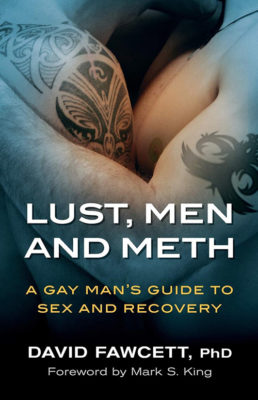 Dr. David Fawcett
Dr. David Fawcett
In the late 1990s, clinicians working with alcoholics observed that they appeared to have ongoing withdrawal symptoms even after they were physically beyond any signs of withdrawal. These symptoms were observed to continue as long as six months after the individual’s last use of alcohol, and to come and go unexpectedly. This phenomenon was eventually identified as post-acute withdrawal syndrome.
Since its discovery, post-acute withdrawal syndrome has been observed with all addictions, including behavioral addictions such as sex, porn, or gambling addiction.
It is worth noting that, despite popular beliefs to the contrary, sex and porn addiction do indeed have withdrawal symptoms. Within 48 hours it is common to observe grumpiness, mood swings, headaches, anxiety, and cravings. These symptoms may hit their peak around seven days after last use. In the period from one to three weeks after porn, users may find themselves in a zombie-like state with low energy levels, an inability to focus, social awkwardness, a low sex drive, and loneliness.
The post-acute period for withdrawal typically begins around two weeks after the last use. During this period there may be random temptations, outbursts of overwhelming emotions, insomnia, and depression. Over the next six months the recovering person may experience a number of uncomfortable symptoms, typically including:
- Irritability
- Hostility
- Depression
- Anxiety
- Mood swings
- Low energy
- Sleep disruption
- Limited ability to focus or think clearly
- Lack of libido
- Inexplicable chronic pain
 This can be disconcerting to the newly recovering person who is making every effort to fight cravings and keep their behavior in line with their recovery plan. Despite their genuine efforts toward sobriety and happiness, post-acute withdrawal symptoms can interfere with the quality of life in the early months of recovery.
This can be disconcerting to the newly recovering person who is making every effort to fight cravings and keep their behavior in line with their recovery plan. Despite their genuine efforts toward sobriety and happiness, post-acute withdrawal symptoms can interfere with the quality of life in the early months of recovery.
Once becoming aware of post-acute withdrawal syndrome, there are steps you can take to help manage any symptoms. This begins with educating yourself about withdrawal, especially anything specific to your particular addictions, and what to expect. A positive attitude is extremely helpful and you should celebrate every accomplishment in this process. A mindset of patience will also go a long way toward helping you tolerate uncomfortable symptoms, especially the emotional ups and downs that can make life more complicated in recovery.
Lack of sleep is one area that can be particularly disturbing in the first several months of recovery. I remember reacting with frustration and anger when my first sponsor repeatedly reminded me that no one ever died from lack of sleep. At the time, it felt as if I was going to be the first to do so. It seemed like I didn’t sleep for the first two years of my recovery.
There are ways to deal with some of this insomnia. Warm baths, hot milk, relaxing for several hours before you go to bed, and avoiding any stimulation (including watching the news on television) before bed will go a long way toward improving the quality of your night’s sleep. You should also practice good sleep hygiene, which means using your bed for sleep and avoiding using your bed as a place to look at the computer, eat, watch television, or do work. Practice going to bed at the same time each day and getting up at the same time each day.
Exercise and diet are also extremely important in helping you cope with post-acute withdrawal syndrome. We know that exercise is beneficial in many ways, including stabilizing moods and producing proteins that repair the neural pathways that were damaged by the addictive process.
It is extremely common for people to switch addictions in recovery, especially to food. Be extremely careful about your diet as the quick mood changing ability of sugar and other refined carbohydrates can be very tempting when you’re at low points resulting from post-acute withdrawal. Remember, the addictive potential of any drug or chemical is determined by how quickly the brain reacts to it. Nothing is faster than the milliseconds it takes for sugar to impact the brain once it touches the tongue.
Be aware that co-occurring disorders may emerge or re-emerge in the period of post-acute withdrawal. For example, depression, which is quite common among addicts, may worsen or low moods may be more persistent than they were previously. The same could be true for anxiety. Since our addictions represent our primary coping mechanism, it makes sense that when we remove those addictions we have fewer resources to deal with uncomfortable feelings. Until we learn new strategies to manage emotions, they may be more distressing than they were earlier.
It is also extremely important to manage impulse control. Many addicts are sensation seekers and low stimulation periods, including boredom, can be a threat to recovery. Many of the intensity addictions such as porn, sex, and sexualized drug use, create landmines in the brain that are just waiting to be triggered. I have had clients with many months of recovery receive a text or call or become triggered in some other way and immediately the addictive impulse blossoms from nothing into a raging forest fire in their head. When facing such strong impulses and drives, it is important to have healthy coping strategies in place before you get triggered.
Perhaps the most effective strategy in dealing with post-acute withdrawal syndrome is the power of connection. More and more research on the nature of addiction documents the importance of a robust social support network that serves as a protective factor against the impulses, fantasies, and power of addictive triggers and cues. Simply stated, we need other recovering people around us who can reflect back to us what they see and hear and who can be there for us when we most need them. This is of course reciprocal, meaning that we are also there for them. That is the true power of connection.
**********
If you or someone you care about is struggling with porn addiction, help is available. Seeking Integrity offers inpatient treatment for sex and porn addicts, as well as low-cost online workgroups. At the same time, SexandRelationshipHealing.com offers a variety of free webinars and drop-in discussion groups, podcasts, and more.
